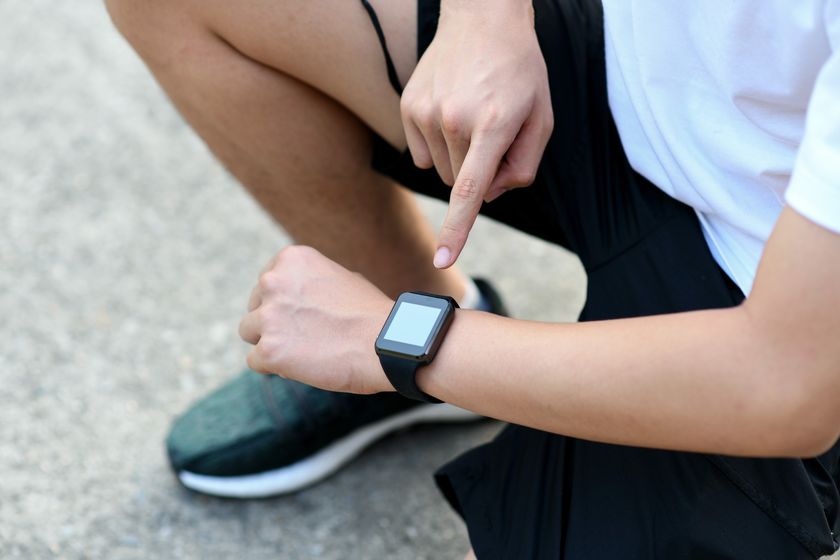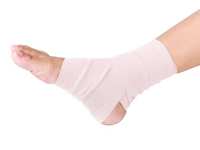- Categories :
- More
Can Wearable Devices Keep Tabs On Your Heart Health?

Wearable devices are wrist detectives. With the right one, you can track your steps, your quality of sleep—even your heart rate. Tracking your heart rate can be useful, especially if you are trying to improve your health or achieve fitness goals.
Your heart rate can also indicate more serious conditions. Devices such as smart watches can detect and report irregular heartbeats. However, just because your watch declares you have an irregular beat, doesn’t mean you do.
“Using wearable devices for monitoring heart rate can be useful for maintaining cardiovascular health and tracking fitness progress,” says Dr. Zaka Khan, MD, a cardiac electrophysiologist affiliated with Memorial Hermann. “However, the interpretation of this data depends on the individual patient’s health goals and conditions.”
That’s where doctors come in.
A pounding beat may be significant—or not.
Abnormal heart rhythms can range from benign to life threatening. Even if your heart seems to pound or flutter, a heart defect may not be to blame. A normal heart rate is usually 60 to 100 beats per minute, but some people have faster rates.
A heart rate over 100 beats per minute is called tachycardia. It may be cause for concern or can be triggered by something harmless, such as exercise, or fear, anger, anxiety or other emotions that can speed up the heart. Some medications, infection and even caffeine can also quicken the heart.
“For most people, monitoring heart rate during exercise is sufficient to make sure they are working out within their target heart rate range,” says Dr. Khan. “However, individuals with cardiovascular diseases like atrial fibrillation (AFib) may need to monitor their heart rate more frequently, possibly even daily, to detect irregularities and manage their condition effectively.”
A smartwatch is no substitute for medical evaluations by trained health care professionals, including cardiologists or electrophysiologists, who are specialists in diagnosing irregular heartbeats.
When wearable devices are helpful.
According to Dr. Khan, wearables that give electrocardiogram (EKG) readings that measure heart rate and heart rhythm are worthwhile for those who are motivated to take positive control over their health.
“Many people believe that an irregular heartbeat is a life-threatening condition and will inevitably lead to a heart attack. While some arrhythmias can be serious, many are benign and not cause for immediate concern,” Dr. Khan says.
“Wearable devices are essential for monitoring irregular heartbeats, offering continuous, real-time data that can detect arrhythmias like AFib noninvasively. Additionally, many wearables feature alerts and notifications to prompt users to seek medical advice when needed,” he adds.
At least 2.7 million Americans have AFib, and by 2030, that number is expected to swell to 12.1 million, reports the U.S. Centers for Disease Control and Prevention. AFib raises the risk for stroke five-fold and doubles the chance of heart-related death. Not all erratic beats are apparent. Some 10% to 15% of AFib cases go undiagnosed, often because they have no signs.
Should you have an irregular rhythm that needs treatment, your doctor may prescribe medicine or perform a minimally invasive surgery to electrically treat the areas where the AFib originates.
Trust your heart’s health to the heart specialists.
“Wearable devices help in the early detection of irregular heartbeats and encourage lifestyle modifications,” Dr. Khan says.
“These devices can continuously monitor heart rhythms, enabling early detection of conditions like AFib, PVCs and tachycardia, which allows for timely medical intervention to potentially prevent serious complications.”
If you have symptoms such as feeling dizzy, lightheaded or you pass out—regardless of what the device says, reach out to your doctor and make an appointment.
At Memorial Hermann, our affiliated specialists provide a broad range of heart arrhythmia and AFib treatment options, from noninvasive treatments to device therapy to minimally invasive procedures.
Concerned about your heartbeat?
Memorial Hermann’s affiliated electrophysiologists, cardiologists and surgeons work collaboratively to treat all types of arrhythmias. That means you can receive high-quality care using leading technology close to home.
Learn about Memorial Hermann’s comprehensive electrophysiology program by clicking here.

















